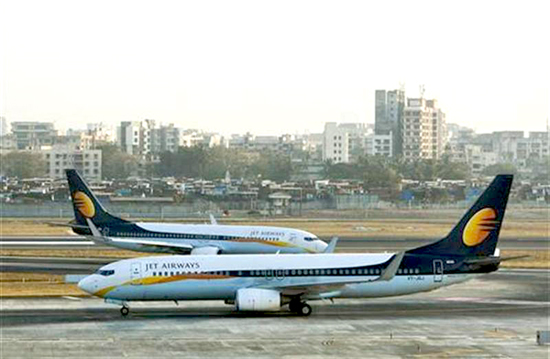
The daring terror attack on Pakistan's Kamra air base on Aug 16 claimed by Tehreek-e-Taliban and persistent intelligence reports that Pakistan-based militant groups keep planning terror attacks on India's civilian airports should be enough to raise all kinds of alarms in India.
The attack should be a serious reminder about the fact that terrorist groups such as the Tehreek-e-Taliban and Lashkar-e-Taiba (LeT) have openly and repeatedly announced that they would like to destroy India's emerging economy through terror strikes, and Pakistan has no visible plans to stop them.
If such elements can breach Pakistan's air base security, Indian civilian airports become all the more vulnerable.
Experts say it is high time the Indian government redoubles its efforts to bring security at its airports to international standards, or maybe even better than the international standards in view of the continuous threat it faces from the Pakistan-based militant group LeT, a group that has openly vowed to destroy India.
The Airports Authority of India did its part on Oct 18, 2007, when it introduced a new Ground Handling Policy, under which any agency operating at airports would have to have 100 percent full-time employees with their background antecedents fully checked by the relevant security agencies.
Officials say that in view of the haphazard standards followed by the different ground handlers at different airports of India, the Ground Handling Policy is also aimed at limiting the numbers of ground handling entities that can carry out such operations at airports.
According to a government notification, under the policy, only three ground handlers would be allowed to perform this function at the six metro airports of the country. These would be AAI or its joint venture company, subsidiary companies of the national carrier and any other independent ground handling company selected through a competitive bidding process subject to its security clearance.
The non-metro airports have been allowed self-handling by the domestic airlines provided they comply with certain standards and ensure that all activities are carried out by their own full-time and bona fide employees.
According to some security experts, strict enforcement of the policy is an absolute must because at some Indian airports, non-entitled entities that are still providing ground handling services do not even comply with International Air Transport Association (IATA) standards. They cite overstaffing with totally untrained personnel without any background and security checks, duplication of resources, the use of inappropriate and outdated equipment and the presence of multiple non-entitled agencies.
All this, they say, has created an environment in which safety and security at airports are being crucially compromised.
Security officials say the new policy has plugged all these loopholes. But its implementation has been delayed again and again by greedy vested interests who want to put "their own petty profits" before the country's security. They are not concerned about the risk that can invite a 9/11 kind of terror attack, jeopardise lives of a large number of people and also hurt India's tourism industry for a long period of time by tarnishing India's image due to the continued chaos at Indian airports.
Since the new policy, when fully implemented, would really improve safety and make Indian airports more secure by using the best service standards and eliminating outsourced non-entitled entities as well as restricting the number of service providers operating at airports, it would result in bringing greater discipline and bona fide trained workers at the airports. Besides making them foolproof from the security angle, it would also prevent accidents on the apron because only IATA-approved equipment limited to certain required numbers would be operating on tarmacs.





Comments
Add new comment